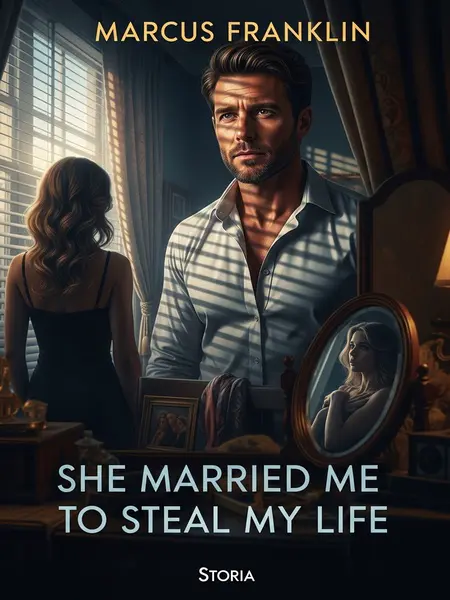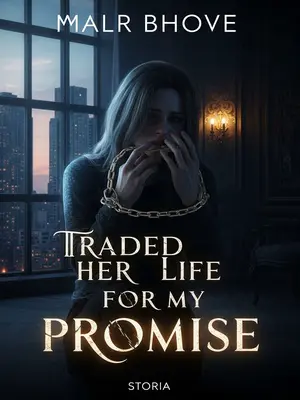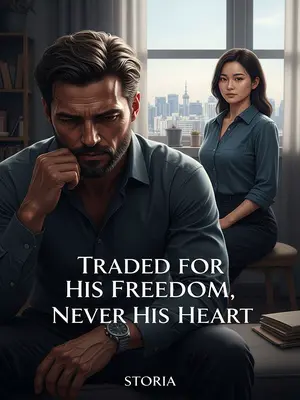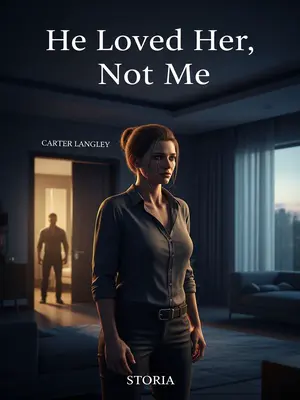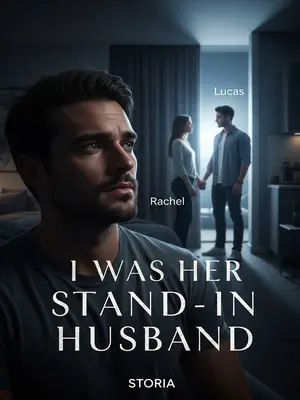Chapter 1: The Widow’s Poisoned Promise
Savannah Brooks wasn’t just some cartoonish gold-digger—she was the kind of woman folks in our small Ohio town whispered about, the kind who made a living pulling marriage scams and walking away with most of what her husbands owned. Before she ever met me, she’d already left three men in her wake.
Everyone around here knew her story, even if nobody dared say it out loud. The way she moved—heels clicking, eyes sharper than a switchblade—she always seemed to be a step ahead of everyone, and nobody ever really managed to pin her down, no matter how hard they tried. I guess I thought I’d be different. Hell, maybe I was just fooling myself. I guess I thought I’d be the exception. Maybe that was my first mistake.
With her lips painted a fierce red, Savannah leaned into my arms, her body melting against me. She brushed a hand across my chest, then looked up with a sly little smile. “Marcus Franklin, you’re my true love.” She paused, her fingers tracing lazy circles on my shirt. “I don’t care about your money.”
Her perfume was thick and sweet, the kind that clings to your skin and lingers on your shirt collar long after she’s gone. I remember thinking, even as I breathed it in, that it was the sort of scent you’d never forget. She looked up at me with those wide, brown eyes—her voice low and smooth, like the hush before a summer storm. But there was always something in her smile I couldn’t quite read. Still, it was so easy to just go along, to let myself believe.
I smiled, but it wasn’t just a smile—it was me trying to hold back everything else. For a split second, I hesitated, searching her face. Then I said, “I believe you.”
I tried to sound warm, maybe even playful, but there was always this flicker of doubt, dancing just out of reach. I watched her lips curl up, and for a second—just a heartbeat—I almost believed myself. Almost.
Of course I believed she didn’t care about my money. I had to, right? Because deep down, I knew what she really wanted was my life. Crazy, right?
The thought spun around my head like some cruel joke I couldn’t get rid of. I used to laugh it off. Not anymore. These days, it just sat there, heavy and ugly. Sometimes, when the house was too quiet, I’d catch her watching me with a look I couldn’t name, and it made my skin crawl.
It was five o’clock on a Saturday. I’d just gotten home from working overtime at the mill, and something immediately felt off. I knocked on the door for what felt like forever, but no one answered. Finally, I dug my keys out of my jacket and unlocked the door.
I pushed the door open, bracing myself for anything.
The moment the door swung open, a thick wave of gas hit me hard. I covered my face fast and ran toward the bedroom.
The smell was sharp and chemical, burning my eyes. I yanked my flannel sleeve up, pressed it to my mouth, and stumbled down the hall, my boots pounding the warped floorboards. The bedroom door was half-shut, a sliver of light leaking out into the gloom. My stomach twisted, and I braced myself.
There she was—my wife, Savannah—lying on the bed, eyes closed, her face an unnatural shade of purple. The sight nearly knocked the breath out of me.
She looked so still it scared me—her hair fanned out across the pillow, one hand dangling off the edge of the bed. For a split second, I thought maybe she was just sleeping. But that color… it wasn’t right. Nothing about this was right.
“Savannah! Wake up! Please, wake up!” My heart hammered in my chest, the words tearing out of me.
My voice cracked as I called her name. I rushed to her side, shaking her shoulders, just hoping for anything, anything at all. Her body was limp, and the silence in the room felt like a punch to the gut. I could barely breathe.
I shook her hard, but she didn’t react at all. God, no. Please, no.
My hands trembled. I pressed my ear to her chest, hoping—praying—for a heartbeat. There was nothing. My mind raced, panic rising up my throat, threatening to choke me.
This was bad—poisoned? Gas? Something worse? My thoughts spun out of control.
A thousand thoughts crashed through my head at once. Gas leak? Foul play? I didn’t know. All I knew was I had to get her out of there. I grabbed her under the arms, my muscles straining, running on pure fear and adrenaline.
I didn’t have time to think. Scooping her up, I bolted for the door. Move, Marcus. Move.
She felt light in my arms, lighter than she ever had before. I barely noticed the pain in my back as I staggered toward the front door, gasping for breath. Her head lolled against my chest, and I just kept going.
Just as I burst outside, I nearly ran into Mrs. Jenkins, our neighbor from next door, who was carrying groceries from Walmart, probably getting ready for dinner.
She was juggling a sack of potatoes and a carton of eggs, her purse swinging from her elbow. She stopped dead in her tracks, her mouth dropping open, eyes wide like she’d just seen a ghost. “Lord, Marcus! What on earth—?”
“Oh my, what’s happened here?” she gasped, nearly dropping her groceries as she rushed over, worry all over her face. Her voice echoed down the quiet street, and heads turned.
I shouted, “Quick! Mrs. Jenkins, call 911! My wife’s not breathing!”
My words tumbled out, frantic. Mrs. Jenkins fumbled for her cell phone, hands shaking as she dialed. I could hear her voice, high and urgent, rattling off our address to the dispatcher, her breath coming fast.
Five minutes felt like forever. The ambulance finally arrived. Savannah was rushed straight back for emergency treatment. The light above the doors burned for hours.
Those minutes dragged on like an eternity. I paced the linoleum floor of the hospital hallway, my boots squeaking with every step. Nurses moved in and out, their faces grim. I kept glancing at the red glow above the double doors, hoping for any sign. Any hope.
Cold sweat poured down my back as I paced anxiously, helpless to do anything but pray that my wife would pull through. I would have given up ten years of my own life if it would save her.
I pressed my hands together, whispering prayers I hadn’t said since I was a kid. The hospital air was cold, sharp with antiseptic. I stared at the scuffed floor tiles, replaying every moment in my head, wondering if I’d missed something—some sign, some warning. God, did I miss something?
Finally, after what felt like hours, the doctors came out. One of them met my eyes and said, “I’m sorry for your loss.”
His voice was gentle, but it landed like a sledgehammer. I stared at his face, searching for something—anything—in his eyes. All I saw was the tired sympathy of a man who’s said those words too many times. No hope there. None at all.
Savannah had inhaled too much carbon monoxide. They couldn’t save her.
The words bounced around in my skull, echoing in the empty spaces where hope used to live. I felt the world tilt, the edges of my vision blurring until everything felt distant and unreal.
All the strength drained out of me. I collapsed to my knees, grabbing at the doctors’ coats, begging, “Please, doctor, please try again! She’s so young, and we’ve only been married three months!” My voice cracked and broke.
My voice was raw, desperate. I doubled over, sobbing—tears hot and stinging. I didn’t care how I looked; grief makes a fool of everyone. My knees scraped the tile.
The doctors and nurses held me back, their hands gentle but firm. “She didn’t have any vital signs when she arrived. We did everything we could.”
They guided me back from the door. I could hear the beep of monitors and the low murmur of voices, but none of it made sense. It felt like someone else’s life falling apart.
I slammed my fists against my head. “God—if I hadn’t worked overtime, she’d still be here! This is on me!”
I slumped against the wall, sobbing. My fists throbbed, but it was nothing compared to the pain tearing up my chest. Regret gnawed at me, sharp and merciless. I kept replaying the day over and over, wishing I could go back and do something—anything—differently. If only.
Mrs. Jenkins pulled me aside, letting out a heavy sigh. “Marcus, don’t beat yourself up so much. Sometimes life just throws things at us, honey. You couldn’t have known. This isn’t on you.”
She squeezed my shoulder, her voice soft and motherly. She smelled faintly of lavender and dish soap. I tried to let her words in, but the guilt just wouldn’t let go. It clung to me like a second skin.
After Savannah died, it was like my soul had left my body. I couldn’t eat a bite. By the second day, I’d already dropped eight pounds without even noticing.
The house felt emptier than ever. I’d wander from room to room, picking up her things—her lipstick on the bathroom sink, her hairbrush on the nightstand—just to feel close to her again. Food tasted like cardboard, and sleep was a stranger. I’d sit on the edge of the bed, staring at the wall, wondering how I was supposed to keep going.
The neighbors all said I was unlucky. I heard them, even when they thought I wasn’t listening.
They’d talk in hushed voices on the porch or in the hallway, glancing my way when they thought I wasn’t listening. I heard every word, though. Every last one.
“Poor Marcus finally got himself a wife, and now she’s gone.” I could almost hear the pity in their voices, the way they shook their heads.
There was pity in their voices, but also that little edge of small-town gossip. Like my life was a soap opera they couldn’t turn off, no matter how bad it got.
“Yeah, he was a lonely bachelor pushing forty. We all thought his luck had finally turned.” Their voices carried through the walls, and I felt each word like a stone.
I could hear the clink of coffee mugs and the creak of rocking chairs as they chatted on the stoop. My name just hung in the air, drifting like a ghost.
“Don’t say that. It’s probably because Marcus’s wife did too many bad things in her past—now the Devil’s come for her.”
That last bit came from Doug Harris, the guy upstairs. He was over forty, like me, still single. When Savannah married me, he’d been the most jealous—couldn’t hide it if he tried.
Doug was always hanging around the stairwell, pretending to water the plants or check his mail. He never missed a chance to stick his nose where it didn’t belong, always hovering, always watching.
I glared at him, then got up and punched him right in the face. My knuckles cracked against his cheek.
My knuckles stung, but it felt good—like letting out a scream I’d been holding in for years. Doug staggered back, eyes wide with shock, hand flying to his face.
He clutched his cheek. “Marcus, what’s wrong with you? Are you crazy?!”
His voice cracked, and for once, he actually looked scared. I could see the neighbors peeking through their blinds, phones in hand, probably ready to call the cops if things got any uglier.
I gritted my teeth. “Say one more word about my wife, I dare you!” My voice was shaking, but I meant every word.
My voice was low and dangerous, the kind of tone that makes people think twice. I could feel the adrenaline buzzing in my veins, making my hands shake.
The other neighbors rushed to intervene, shuffling between us, hands out, trying to keep things from boiling over.
Mrs. Jenkins wedged herself between us, arms outstretched. “Doug, knock it off. The man just lost his wife, show some respect.” Her eyes flashed, and even Doug backed up a step.
“Yeah, Doug, just shut up already!” someone else barked from behind.
Old Mr. Weaver from across the hall chimed in, shaking his cane. “Let the man grieve in peace.” His voice was rough, but there was kindness in it.
“Marcus, don’t stoop to his level.”
Mrs. Jenkins’ voice was gentle but firm. She looked at me with real kindness, and I felt some of the anger drain away. I let out a shaky breath.
Doug muttered some curses, but when he saw the rage in my eyes, he backed off, still holding his face, grumbling as he went.
He muttered something under his breath and disappeared up the stairs, but I could feel his glare burning holes in my back. The whole building seemed to let out a sigh of relief as the tension faded. I just stood there, numb.
